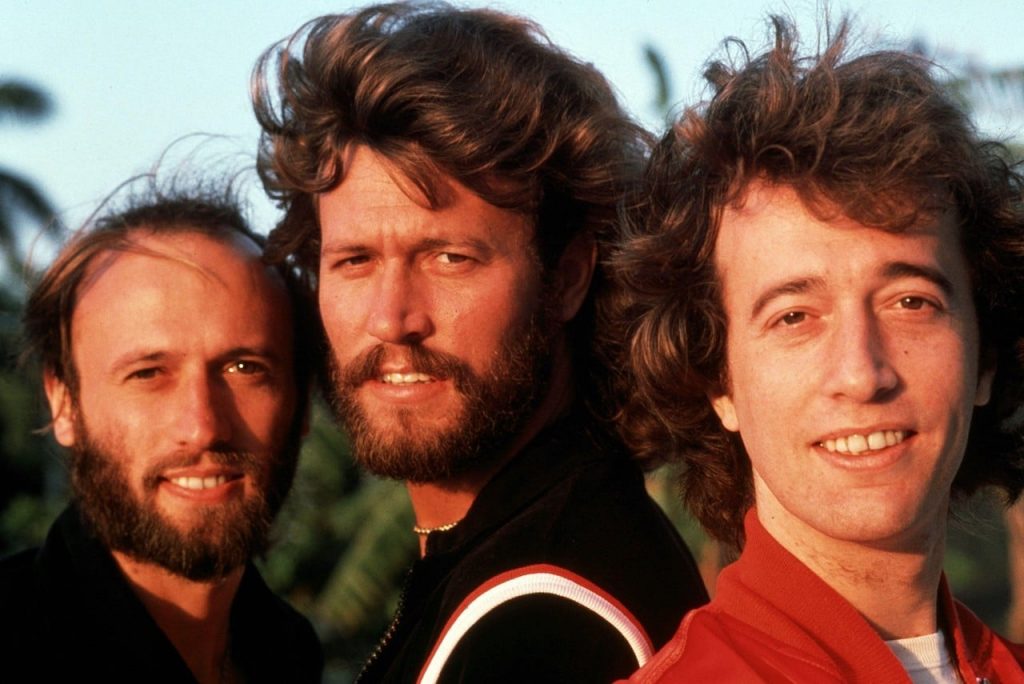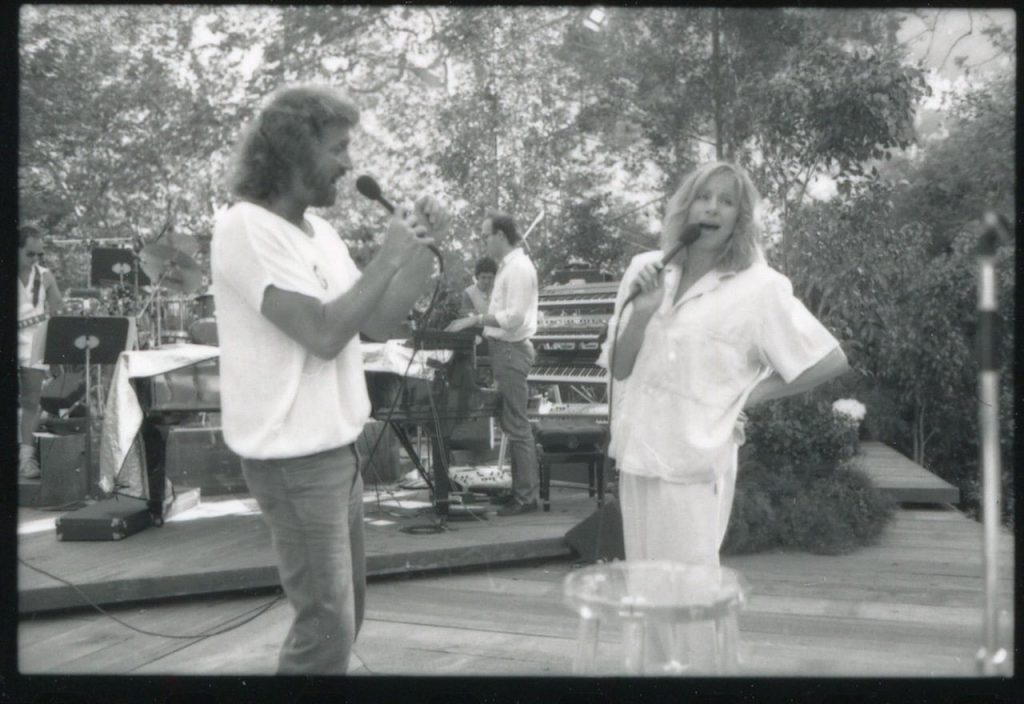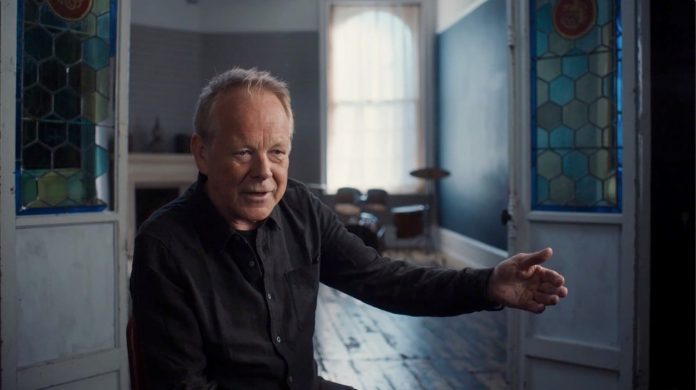Rock ‘n’ Roll industry should thank their lucky stars that there was no social media around in the 1960s and 70s.
Bill Oakes, who was the head of Robert Stigwood’s record company, RSO in those days, says the music industry was only beginning to find its place in the world and drugs and alcohol were rife.
Even the Bee Gees with their close-knit brotherhood and clean-cut image succumbed to the party life where successful musicians could have anything they wanted.
The compelling documentary film released in cinemas on 3 December, The Bee Gees: How Can You Mend a Broken Heart, chronicles the rise of the legendary band and the evolution of their music over the years and goes behind the scenes to show something of the private lives of the Gibb brothers.
Speaking to Have a Go News from his UK home, Oakes said the Gibb brothers weren’t unique in drug-taking and alcohol in those days.
“It was that era of excess, where nowadays people seem much better behaved,” he says.
“I think it was partly because it was a new business. People forget how in the early 70s rock ‘n’ roll was huge in the sense the money was coming in and there weren’t any rules yet.
“It was nothing like the pop business of the 50s.
“They were victims in a way of that lifestyle where if you were on top you got anything you wanted, and they did, and they took advantage of it, each in their own way.
“But I don’t think it affected their work. When it came to their work in the studios, they were very dedicated.
“Gosh knows, if social media had been around in the 60s and certainly in the 70s, they’d have had a field day.”
While the film will certainly resonate with older audiences who grew up with the more than 1000 songs and 20 number one hits the Bee Gees created during their career, Oakes says the film should also appeal to younger audiences.
He says the producers of the film have been smart to include the perspectives of performers like Justin Timberlake, Chris Martin and Noel Gallagher, music producer Mark Ronson and musicians from the day, including Lulu and Eric Clapton.
It also features interviews with surviving brother Barry which helps to create a strong connection to the story.
“The film is tilted towards the generation that remembers being around when those records were released,” Oakes says.
“The thing about the Bee Gees though is their music is still being played and Saturday Night Fever lives on, so they’re not a period piece, they’re evergreens really.”

As the head of RSO Records, Oakes commissioned the Bee Gees to write songs for the 1977 film that would become Saturday Night Fever with a soundtrack album that would become one of the biggest albums in history.
“Robert and I went to France where the Bee Gees were producing a live album at the time and I gave them the script, which I don’t think they ever read, but we outlined the story very briefly.
“I don’t think they were interested in the story to be honest, but they loved Robert and were having fun with him.
“I was just occasionally saying to them ‘there’s the script’ and then we left for Paris.
“Two or three weeks later this magical cassette arrived which had these five killer songs on it. They clearly had been listening to what the movie was all about.”
Those tracks were More Than a Woman, How Deep is Your Love, If I Can’t Have You, Night Fever and Stayin’ Alive.
“They gave us gold dust and just imagine what they could have done if they’d read the script.”
“Their music is timeless.”
As music supervisor, Oakes won a Grammy for Saturday Night Fever.
He also supervised the music for another of the best-selling soundtracks of all time, Grease, which won him an American Music Award.
Among his other credits are supervision for the soundtracks of Alan Parker’s Fame and George Lucas’s The Empire Strikes Back.
“I was all of about 21 when I got to New York with Robert Stigwood, who managed the Bee Gees. I think because I was the only guy in the room when he thought of having a record company, he asked me to run it, which was quite a shock to me,” Oakes says.
“I’d already met the Bee Gees briefly, because in my previous job, in my late teens I was working as an assistant to The Beatles, so I was quite used to rock and roll royalty, but I was not expecting the Bee Gees.
“They were very different to The Beatles, they had a bond between them that remained unbreakable until the brothers passed away (Maurice died in 2003 and Robin in 2012), which set them apart from the other acts that I knew.”
As well as interviews with Oakes and several musicians, the film features archival footage of recording sessions, concert performances, television appearances and home videos.
Oakes says he decided to get involved with the new movie when he heard that Barry Gibb was involved.
“When I heard that Barry was onboard I was pleased because I’ve done a few interviews over the years on various programs about the Bee Gees, but this came very directly with the validation of Barry Gibb, who said I should be approached.

“I was happy to make a contribution. If you’re going to tell the story of the Bee Gees, I was there for probably a 10-year stretch in the 1970s mainly, I was very much part of their lives.”
Oakes says that while it’s difficult to say what music will work today in an entirely different landscape, the melodies of the Bee Gees are timeless.
“The thing that distinguishes them, although they went through various musical guises like middle of the road hits like How Can You Mend A Broken Heart and then into disco and R&B, but I think what distinguishes them is their gift for melody.
“I think what they brought to disco was melody, which is why Saturday Night Fever resonated so well.”
He believes they would still resonate today: “Their music is timeless.”
“They’ll be known 100 years from now as one of the best song-writing partnerships of the late 20th century.”



































